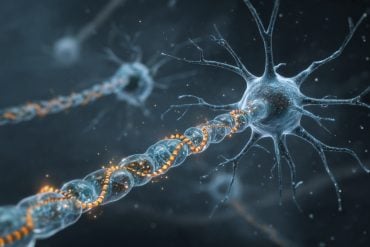Summary: A new study reports experimenting with new marijuana products and edibles may increase the odds of experiencing an unexpected high.
Source: RTI International.
Marijuana has been legal for adult recreational use in Colorado since 2014, but the verdict is still out on benefits and harms. Will legalization reduce opioid abuse and marijuana-related arrests? Will it increase use among youth and incidence of impaired driving?
A new study by RTI International suggests that unexpected highs are a consequence of using new marijuana products and edibles—products that have flooded the marijuana market since legalization of recreational marijuana use.
The study, published in Drug and Alcohol Dependence, found that in the context of legalization, many marijuana users will try new marijuana products and use edibles, and that doing so markedly increases the odds of experiencing an unexpected high.
The research shows that most people who experienced an unexpected high slept it off, and others engaged in protective behaviors such as deciding not to drive or changing or cancelling plans. However, respondents also reported having unintended sex as a result of the unexpected high, and some ended up in the hospital, clinic or emergency room.
“Marijuana users who reported using new marijuana products or edibles were at greater risk of experiencing an unexpected high, regardless of their age, gender, education, mental health status, or amount of marijuana consumed in the past month,” said Jane Allen, study author and research public health analyst at RTI.

Researchers surveyed 634 adults in Colorado in the first year that marijuana was legal for adult recreational use. More than 70 percent of respondents reported having tried a new marijuana product, and about half reported using edibles.
“States that have legalized marijuana for recreational use are thinking about how they can prevent negative public health outcomes,” Allen said. “One way we can help them do that is to study consumer perceptions of marijuana, including product packaging, required warning labels, and consumption advice so states can refine how they communicate marijuana information to the public. Effective communication should help to reduce unexpected highs.”
Source: Jen Middleton – RTI International
Image Source: NeuroscienceNews.com image is adapted from the RTI International news release.
Original Research: Full open access research for “New product trial, use of edibles, and unexpected highs among marijuana and hashish users in Colorado” by Jane A. Allen, Kevin C. Davis, Jennifer C. Duke, James M. Nonnemaker, Brian R. Bradfield, and Matthew C. Farrelly in Drug and Alcohol Dependence. Published online May 9 2017 doi:10.1016/j.drugalcdep.2017.03.006
[cbtabs][cbtab title=”MLA”]RTI International “Trying New Marijuana Products and Edibles Associated With Unexpected Highs.” NeuroscienceNews. NeuroscienceNews, 15 May 2017.
<https://neurosciencenews.com/highs-edibles-marijuana-products-6678/>.[/cbtab][cbtab title=”APA”]RTI International (2017, May 15). Trying New Marijuana Products and Edibles Associated With Unexpected Highs. NeuroscienceNew. Retrieved May 15, 2017 from https://neurosciencenews.com/highs-edibles-marijuana-products-6678/[/cbtab][cbtab title=”Chicago”]RTI International “Trying New Marijuana Products and Edibles Associated With Unexpected Highs.” https://neurosciencenews.com/highs-edibles-marijuana-products-6678/ (accessed May 15, 2017).[/cbtab][/cbtabs]
Abstract
New product trial, use of edibles, and unexpected highs among marijuana and hashish users in Colorado
Objective
This study examines the relationships between trial of new marijuana or hashish products and unexpected highs, and use of edible products and unexpected highs.
Methods
We conducted an online survey of 634 adult, past-year marijuana users in Colorado. We used logistic regression models to examine the relationship between new product trial or edible use and unexpected highs.
Results
In the first year that recreational marijuana was legal in Colorado, 71.4% of respondents tried a new marijuana or hashish product, and 53.6% used an edible product. Trial of new products was associated with greater odds of experiencing an unexpected high after controlling for age, gender, education, mental health status, current marijuana or hashish use, and mean amount of marijuana or hashish consumed in the past month (OR = 2.13, p < 0.001). Individuals who reported having used edibles had greater odds of experiencing an unexpected high, after controlling for the same set of variables (OR = 1.56, p < 0.05).
Conclusion
People who try new marijuana or hashish products, or use edible marijuana or hashish products, are at greater risk for an unexpected high. It is possible that some negative outcomes associated with marijuana use and unexpected highs may be averted through a better understanding of how to use product packaging to communicate with consumers.
“New product trial, use of edibles, and unexpected highs among marijuana and hashish users in Colorado” by Jane A. Allen, Kevin C. Davis, Jennifer C. Duke, James M. Nonnemaker, Brian R. Bradfield, and Matthew C. Farrelly in Drug and Alcohol Dependence. Published online May 9 2017 doi:10.1016/j.drugalcdep.2017.03.006






